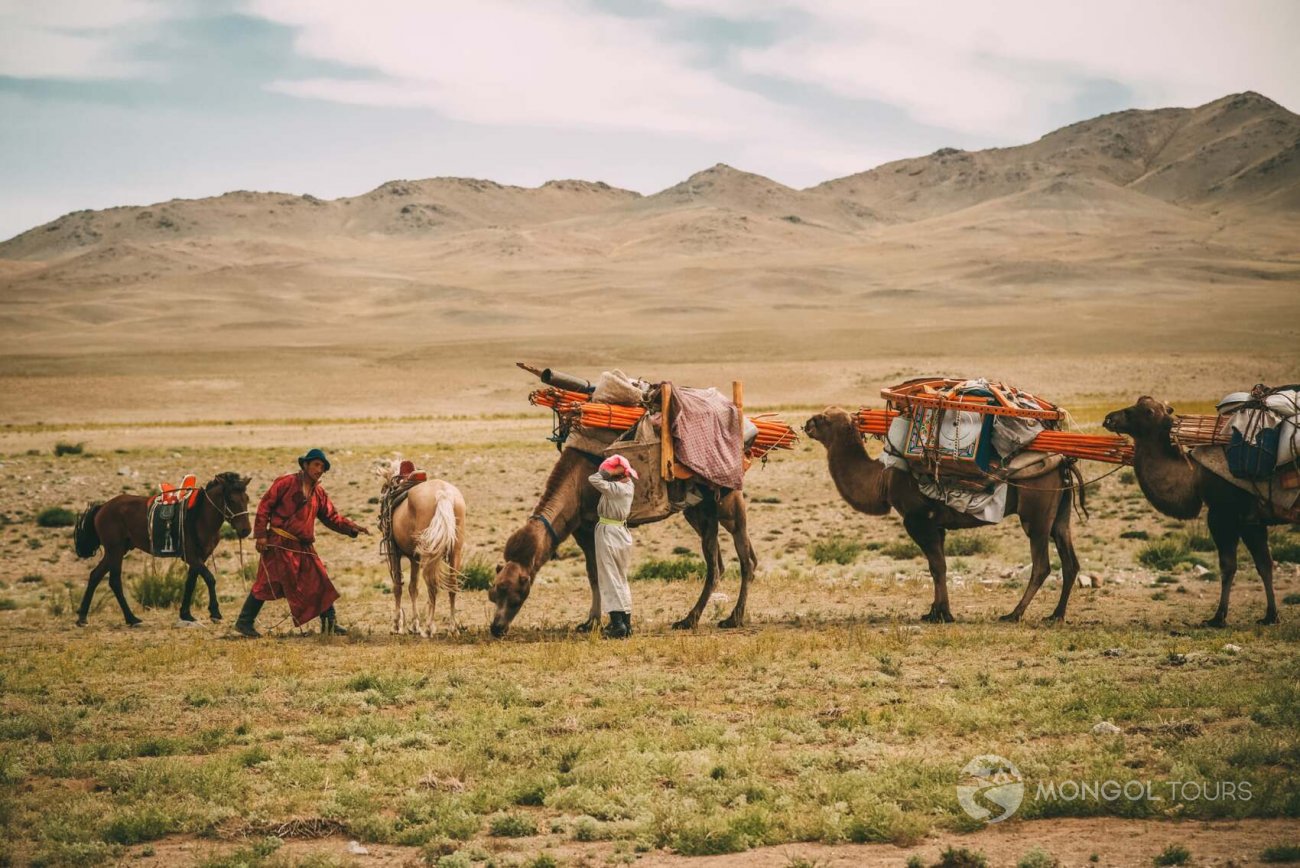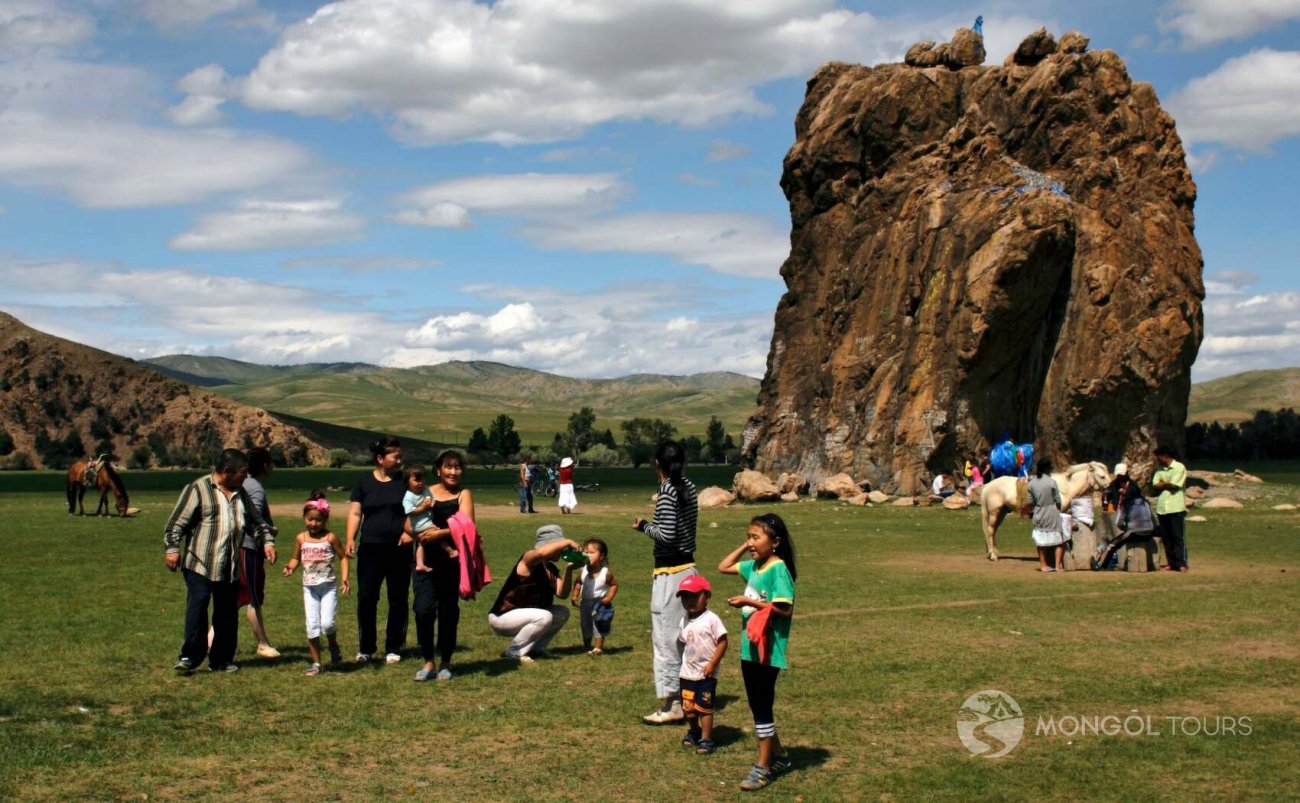Mongolia in brief
Territory: 1,566,500 sq. km.
Average Altitude: 1,350 m above sea-level
Population: 3.09 million (June, 2016, NSO)
Nationality: Mongolian(s) and small part of Kazakh(s)
Language: Mongolian,
Climate: Continental, with little precipitation and sharp seasonal fluctuations
Currency: Tugrik- ₮ (As of May 2025, 1 USD-3600 tugrik 1 Euro-3970 tugrik)
Time: GMT+ 08:00
Tourist season: Peak season July-September, low season June, October.
Electricity: 220Volt/50Hrz
Telecommunications: Dialing code for Mongolia is ( 00976 ) for Ulaanbaatar is ( 11 ) Most hotels and guest houses have international direct dialing.
Mongolia, a definition of nomads, which is the biggest group of the Nomadic/ Felt nation in the worldwide. A country known as the land of blue sky is a landlocked country in the heart of eastern Asia sandwiched between Russia and China. Can you imagine there is 70 million livestock in our country? We are one of the reachest history countries in the world, who are living with their livestock in extreme weather and kept their tradition, culture and unspoiled nature in this fascinating the world.
Apart from its amazing history, Mongolia is becoming famous for its spectacular natural beauty and wild life consisted of incredibly vast ‘steppe’ grasslands, majestic mountains reaching up the sky, the vast Gobi desert, crystal clear rivers, and lakes beautifully existing in harmony. Mountains dominate two-thirds of the country while forests cover nearly 10% of the land supporting Wolf, Wild Bear, Elk, Deer, Antelope and Brown bear. Steppes and forest margins support Marmot, Muskrat, Fox, Steppe Fox and Sable.
 Remote mountains support wild cats such as lynx and Snow Leopard. Mongolia is a home of the Wild Ass, Wild Camel, and Wild Sheep. Bird life is rich and includes Golden Eagle, Bearded Vulture, and other birds of prey, while the 2,000 lakes are magnet for water birds including Storks and even Herring Gull and Relict Gull. The breathtaking natural beauty of Mongolia and the uniqueness of its culture and lifestyle, together with the friendliness and traditional hospitality of nomad people, make the country a remarkably desired place to discover.
Remote mountains support wild cats such as lynx and Snow Leopard. Mongolia is a home of the Wild Ass, Wild Camel, and Wild Sheep. Bird life is rich and includes Golden Eagle, Bearded Vulture, and other birds of prey, while the 2,000 lakes are magnet for water birds including Storks and even Herring Gull and Relict Gull. The breathtaking natural beauty of Mongolia and the uniqueness of its culture and lifestyle, together with the friendliness and traditional hospitality of nomad people, make the country a remarkably desired place to discover.
Culture and Tradition:
The Nomadic Mongolian has a full well preserved culture. Today 900,000 nomads inhabit in the vast steppes of Mongolia where perpetuate ancient traditions. The population of Mongolian herders is very geographically dispersed and still lives in yurt (called Ger in Mongolian), a removable housing suited to their lifestyle.
Nomadism is based on the rearing of five species: goats, cattle (including yaks), sheep, camels and horses. A transhumance distance varies by region: if the feed is DEFAULT too far from the winter camp, as in the steppe, the family moves to less than a hundred kilometers. However, in the desert, the caravan traveled more than 1,000 km and often with more than one ton baggage.
Population:
The population of Mongolia amounted to 3.09 million inhabitants by 2016. Although the majority of the population is Mongolian origin (Khalkhas) , which is 86% of the population and the other largest ethnics are Kazakhs in western part and the Buryats in northern part of Mongolia. However, differences between ethnic Mongolian groups are minor.
Approximately 60 % of the population in Mongolia is urbanized, and more than half of the urban population lives in capital city, Ulaan Bator (which increased about 50% in the last 5 years)
Economy:
For centuries, the economy of Mongolia was based on agriculture and livestock, a trade related to the Silk Road. These are the Mongolians who first contacted the East and West.
As currently, major domestic privatization programs have been undertaken, as well as fostering of foreign direct investment through the international tender of the oil distribution company, a leading cashmere wool company, and banks.
Government:
Today, Mongolia has a parliamentary system. Representatives are elected by direct universal suffrage for a term of four years. Presidential elections are held every four years. Currently, the President of Mongolia is Elbegdorj Tsakhia.
Religion: Most of the population are Buddhist, but maintains shamanistic beliefs. Animist beliefs are also very strong in Mongolia long suppressed under the Soviet communist era, shamanistic traditions and shamans, men and women have reappeared since the mid- 1990s. All nomadic tribes try to live in harmony with nature.Tibetan Buddhist Lamaism and Shamanists 90%, Muslim 6% (primarily in the southwest) and Christian 4%




Follow Us On Social